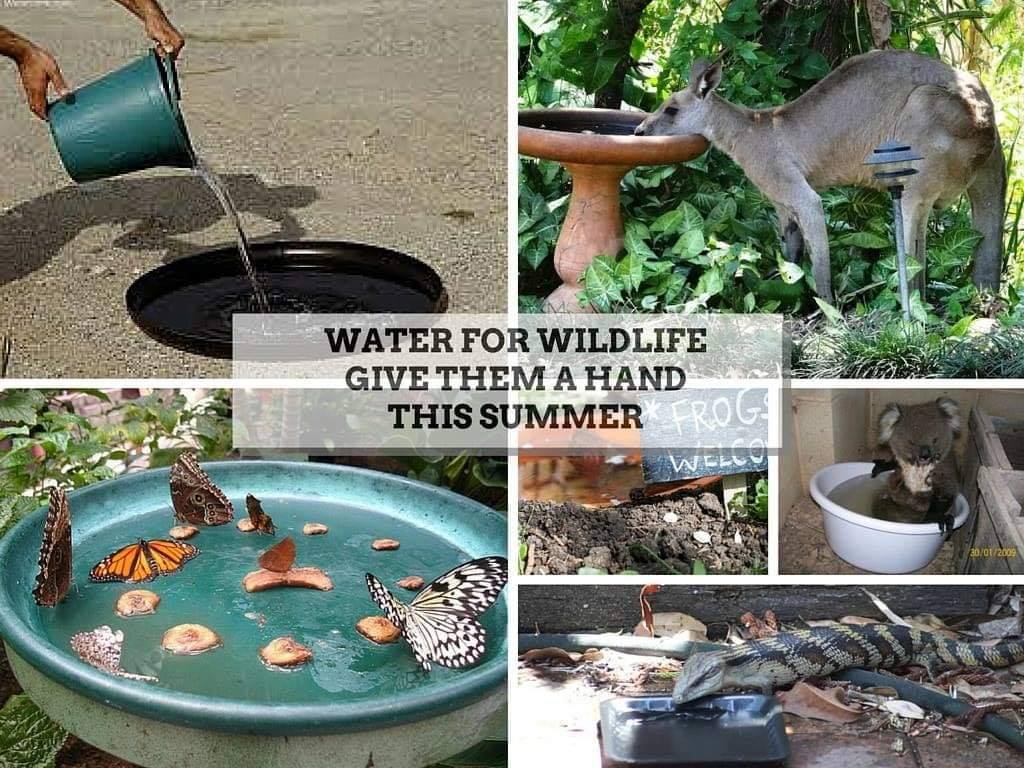It’s so important to make sure you’re all prepared during hot weather to care for your pets, livestock and even native wildlife.
All pets must have access to cool, shady areas. It is ideal to bring pets indoors (where possible) on hot days. If you’re feeling warm, chances are they are too. Make sure the animals’ enclosures are out of direct sunlight and protected from the sun as the shade moves throughout the day.
Small pets, such as rabbits, guinea pigs and birds, are particularly susceptible to heat. Short nosed or flat faced dog breeds are also more susceptible to heat stroke e.g. Pugs, English and French bulldogs. If allowed free run in a laundry or bathroom, they will benefit from the cool tiles. If this is not possible, drape their cage with wet towels and provide a sturdy ice pack or frozen water bottle for the animal to lean against so it can regulate its own body temperature.
Provide plenty of fresh, cool water in large water containers. Be sure to provide multiple containers in case one is spilled. Place the containers in the shade and add some ice to the water to keep it cool.
Extreme heat is a challenge for everyone especially our pets. During heat waves and hot days it is vital that you take extra precautions to keep your pets cool and prevent them from falling victim to heat exhaustion.
Never leave animals in a vehicle, in the sun, even with the windows down! Animals can’t sweat; heat stress and death can occur within six minutes.
If your pet seems to be in discomfort, try wetting their feet and misting water onto their face. This is an option for dogs, cats, ferrets, poultry and caged birds as many animals control their inner temperature through their feet. It’s important not to saturate a bird’s feathers as this can cause them to go into shock.
IMPORTANT: At all times, if you are unsure about the health of your pet during hot days – seek veterinary advice immediately
Species specific care:
Birds:
Indoor birds should be housed in the coolest room in the house – but not placed directly in front of a fan or air-conditioner, instead use a spray bottle to keep birds cool.
Birds kept in aviaries should be provided with misting sprays/sprinklers over the aviary with the spray as fine as possible. This will prevent high temperatures & humidity build-up.
Do not turn misting off until the extensive heat has faded. Turning off too early will allow for increased humidity build-up which will affect your birds.
Provide ample water dishes including shallow dishes for birds to bathe.
Cats:
If your cat begins to pant, this is not a good sign and you need to wrap the cat in a cool, wet towel immediately. Don’t use ice-cold water or ice as this may worsen the problem. Apply a fan/fanning to maximise heat loss.
Heat stress symptoms to look for:
- Panting which increases as heatstroke progresses
- Drooling, salivating
- Agitation, restlessness
- Very red or pale gums
- Bright red tongue
- Increased heart rate
- Breathing distress
- Dizziness and staggering
- Vomiting diarrhoea (possibly with blood)
- Lethargy or weakness
- Signs of mental confusion, delirium
- Muscle tremors
- Seizures
- Collapsing and lying down
- Little to no urine production
To prevent heatstroke, fill a zip lock bag around a quarter full, get out as much air as you can, seal it & lay it flat in the freezer. Place under a towel or sheet to make a cool spot if you cat chooses it. Access to plenty of fresh and clean drinking water, and give access to a cool space, tiled floor or well ventilated
Dogs:
For dogs, heat exhaustion can be dangerous – even fatal. In many cases heat exhaustion is preventable and there are a few simple things you can do to protect your dog this summer.
It is important to note that short-nosed (brachycephalic) breeds of dogs are at higher risk of heat exhaustion than other breeds. Extra care should also be taken with dogs that are obese, elderly, arthritic or have respiratory difficulties as they are more prone to heat exhaustion than others.
Walking your dog when the ground is too hot can cause serious damage to their paws. Instead, walk your dog in the coolness of the early morning or evening.
Horses:
Horses can tolerate low temperatures much better than high. Ensure they have access to shade throughout the day and will not run out of water. Hosing can help cool a hot horse, and you do not need to scrape them.
Heat stress symptoms to look for:
· Excessive panting and tongue hanging out
· Wobbly on feet
· Excessive salivation
· Warm/hot to touch
· Lethargic
· Head drooping
· If it becomes severe, cattle will tremble and lose coordination
· Refusal to lie down.
· Increased respiratory rate
Quick Treatment:
Treatment involves getting the internal body temperature back down by cooling.
· Place animal in a cool shaded area
· Make up a solution of Vytrate & feed (Vytrate is used as it is replaces lost electrolytes)
· Wet the animal all over with a towel. This includes sensitive areas such as armpit, under the stomach and between the legs & neck. Keep repeating this until the skin has cooled down.
Reptiles:
While many reptiles can cope with extreme heat, enclosures that do not allow sufficient flow of air or space for the reptile to find a cooler location can kill your reptiles quickly
Species of gecko in particular do not do well in extreme temperatures.
On extreme temperature days it is best to turn off heating & lights and provide frozen water bottles or a shallow dish of water to allow your reptile the ability to regulate their own body temperature.
Small mammals:
With small mammals including rabbits, guinea pigs, rats & mice it is important to keep them cool as they do not cope well in the heat requiring air circulation to cool their bodies down.
Fans are the best for this along with keeping them indoors in the coolest room of your house or place a frozen bottle of water with them, this will provide a cool refuge and the animal can hydrate by licking up the cool condensation that forms on the outside of the bottle.
If outdoors, help prevent heat stroke by keeping the rabbits in the shade, putting shade cloth over the pen, ensuring constant access to fresh water, give the rabbits damp towels to lie on, and use ice bricks covered in a tea towel. Ideally all should be kept indoors during extreme heat.
DO NOT put a rabbit in cold water or directly in front of a fan or air conditioner. This is too much of a contrast in temperature and could put your rabbit into shock. Rats & mice should not be kept outdoors.
Small mammals can start stressing from the heat when the temperature gets over 24 degrees and they can suffer from heat stroke when the temperature is over 30 degrees.
Small mammals will not drink tepid water on hot days, so regularly refreshing the water is ideal to encourage your pet to drink.
Native Wildlife:
Leave water dishes of varying sizes including saucers or shallow dishes with pebbles and larger containers and bird baths out in shaded locations for our native wildlife to access.
Small lizards and bees will benefit from the saucers while larger animals and birds will enjoy the easy access to water.
For the benefit of wildlife keep your dogs and cats away from these areas.

Ensure your swimming pool is covered. Many animals drown after trying to access water from a swimming pool.
Flying fox colonies can be severely affected by lack of fruit, blossoms and water. Leaving a string of hanging apples will benefit them greatly. Ensure the area you do this is out of reach of climbing cats.




